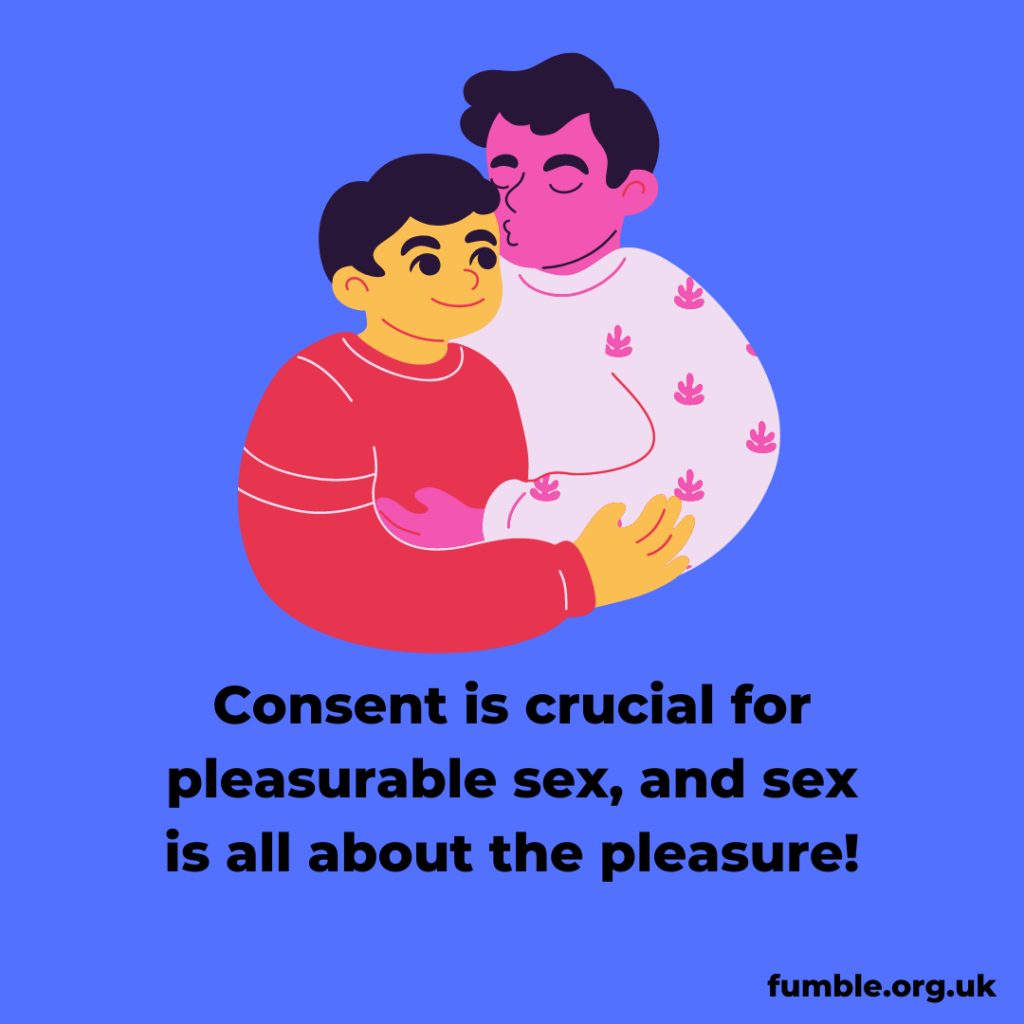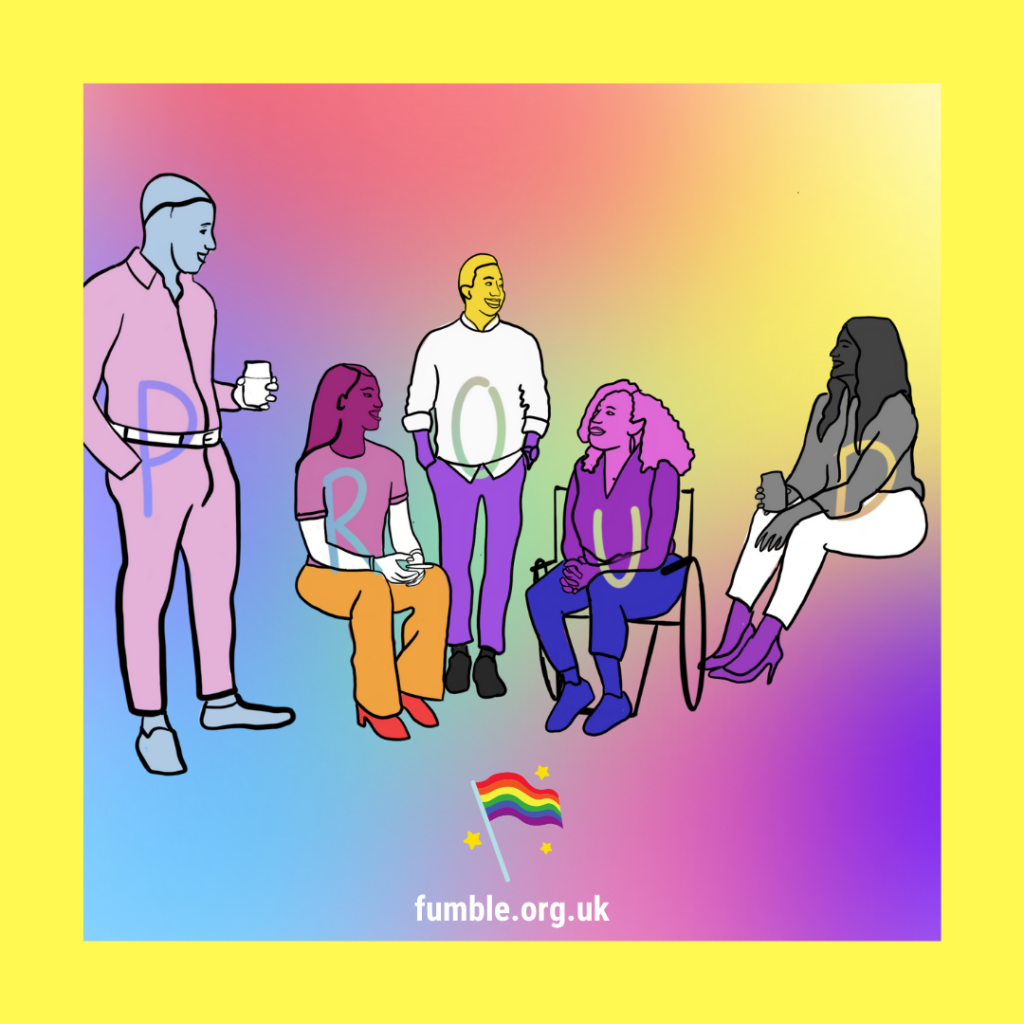7 tips for your first queer sexual experience
Any first sexual experience can feel uncertain, so here are some tips for your first (but also any!) queer sexual experience
1. Make sure you feel comfortable
There is a difference between feeling nervous, and feeling uncomfortable. The first time you’re sexually intimate with someone can be nerve racking, no matter what your sexuality is and who you’re having sex with. But because we live in a world that has made us question our queerness, the first (non-heterosexual) time with someone can feel especially daunting. Queer experiences and relationships are often excluded from sex ed and, despite progress, media and popular culture still mostly revolve around straight relationships and sex.
So, it’s understandable and very common to have those butterfly nerves. Hopefully the nerves are also mixed with excitement – often it’s hard to tell these two feelings apart! It’s okay to feel nervous. And it’s also okay to need to take it slow. There isn’t any rush, and there shouldn’t be any pressure to rush from the other person. Focus on whether you feel ready or not, rather than what anyone else wants.
2. Consent consent consent
This leads on from the first point. Consent is so important and is just as essential in queer sexual experiences as straight ones. Penis-in-vagina (PIV) sex is often seen as ‘sex’ (thank you, heteronormativity), but consent is crucial for any kind of sexual intimacy. Whether that’s a blowjob, fingering, or anal sex.
Sexual consent is about checking in with each other, throughout any sexual intimacy. It’s about listening to the other person, being considerate of their feelings and enjoyment, and wanting them to feel safe and comfortable with you. We know it can feel complicated to say no to sex, and there are different ways to communicate what we want and don’t want, through words and body language.

3. Communication
Often, queer sex gets depicted through a heterosexual male gaze. It’s used to represent a hyper-sexualised male fantasy, for example porn showing lesbian sex that’s made for the audience of straight men. Sex in real life doesn’t look the way it does in films, and definitely not in mainstream porn. We can’t automatically assume what someone else likes, or assume someone else knows what we like either. Unless we talk about it!
Communicating to your partner what feels good, what doesn’t, and what you want to try is all part of the learning process. This can feel forced and unnatural at first, mainly because we’re fed this unrealistic idea that we should automatically know what we’re doing. Trust us, a little communication can get you a long way in the bedroom.

4. Sex is not just about penetration
Society has conditioned us to think that sex = penetration and has to result in an ‘end goal’. That’s usually penis ejaculation, or both people orgasming at the same time, right at the end (very hard to make happen in real life!). But sex doesn’t need to include penetration at all.
If you want to try anal penetration (possibly using sex toys), do your research on how to do it safely. Lube is crucial! Anal sex is also much more than just penetration – for example, rimming, massaging, fingering and certain sex toys can be just as fun and stimulating.
5. There’s no script!
Because of countless societal influences (TV and film, mainstream porn, etc.), we can often find ourselves following or thinking of a sexual ‘script’, without even realising. This is usually straight sex, but this ‘script’ also infiltrates queer sex too: kissing, followed by touching, fingering or a handjob, then maybe oral, going down on them or giving them a blowjob, and finally penetrative sex (usually penis-in-vagina). In TV shows, it’s sometimes described as first base, followed by second, third, fourth, etc.
But we don’t need to follow this ‘script’. Shake it off, get rid! Make it about what you and your sexual partner want and enjoy. There are lots of different ways to have sex, and you can slow down or go back to kissing/touching, as you and your partner want.
6. Keeping safe
It’s still necessary to think about contraception for queer sexual experiences. It may be that you don’t need to think about contraception that prevents unwanted pregnancies, but everyone needs to be savvy about sexually transmitted infections (STIs). Make sure you’re looking after yourself and your partners by using condoms or dental dams to prevent passing on STIs. Get tested regularly and make sure your sexual partners do too.
7. Finally: enjoy yourself!
As long as you feel safe, comfortable and everyone consents, there’s no right or wrong way to go about this. Try not to overthink it. Focus on what you and your sexual partner enjoy. Sex should be fun!

Other support
- What is sex?
- Am I ready to have sex for the first time?
- How to have the sex without the sex
- Brook – Having great sex (safely!)
- Brook – Talking about sex
Read more
Last Reviewed 12 July 2023
Image Credit: iamjiroe via Unsplash







